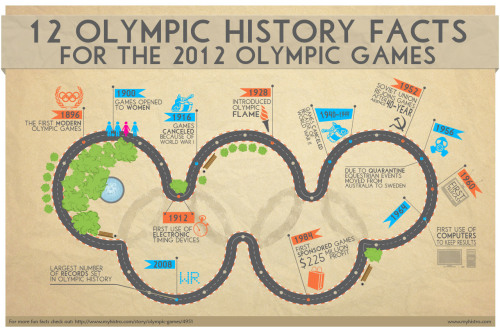
The Olympic Flag
The Olympic Flag was designed by Pierre de Coubertin in 1914. The Rings represent the five continents of the world, all joined together in peace and friendship. The colours - blue, red, yellow, black and green - were chosen as at least one of them is used on every flag of every country in the world. The colours also stand for the educational values of the Games:
Blue = Pursuit of Excellence
- Red = Fair Play
- Black = Joy of Effort
- Green = Balance between body, will and mind
- Yellow = Respect for others
The Olympic Oath, Creed and Motto
Inspired by a speech made by Bishop Ethelbert Talbot at a service for Olympic Champions in the 1908 Games, de Coubertin created the Olympic creed which is still used today.
"The most important thing in the Olympic Games is not to win but to take part, just as the most important thing in life is not the triumph but the struggle. The essential thing is not to have conquered but to have fought well."
The motto was created in 1921 when de Coubertin borrowed a Latin phrase from his friend, Father Henri Didon.
The Olympic Oath, again written by de Coubertin, has been changed over the years. One athlete speaks the oath on behalf of all the athletes. This athlete is a member of the host team, and holds a corner of the olympic flag while speaking the oath.
"In the name of all the competitors, I promise that we shall take part in these Olympic Games, respecting and abiding by the rules which govern them, committing ourselves to a sport without doping and without drugs, in the true spirit of sportsmanship, for the glory of sport and the honour of our teams."
Judges and Referees were made speak an oath for the first time in 1972,
"In the name of all the judges and officials, I promise that we shall officiate in these Olympic Games with complete impartiality, respecting and abiding by the rules which govern them in the true spirit of sportsmanship."In 2012, a coach from the host country was made take an oath.
"In the name of all the coaches and other members of the athletes' entourage, I promise that we shall commit ourselves to ensuring that the spirit of sportsmanship and fair play is fully adhered to and upheld in accordance with the fundamental principles of Olympism"The Olympic Hymn
The music for the hymn was composed by Spyros Samaras and words added by Greece's national poet, Kostis Palamas. Although played for the first time at the 1896 Games, it was only made the official Olympic hymn by the IOC in 1957 and used in the 1960 games. Before then, each country had gotten a local composer to compose the hymn.
Usually, each host nation sings the hymn in their own language during the Opening Ceremony. It is played when the Olympic Flag is raised.
The Olympic flame is lit in Olympia in Greece by women dressed in ancient style robes using a curved mirror and the sun. It is kept burning until the end of the Games - this idea was first done in the 1928 Games in Amsterdam. The first torch relay was in 1936, when the Games were in Berlin. Each torch has a unique design.


No comments:
Post a Comment